These days, as a Project Manager, I had the opportunity to listen to a presentation by real professionals. The management consultancy McKinsey lectured about the role of the CEO in the company, about his important tasks, his contribution to the company’s success, and also about why he receives an appropriate salary for it.
I had to smile. Because I often discuss exactly the same things with CEOs, managing directors, division heads and other decision-makers in management when it comes to the appropriate staffing and thus also payment of their projects with a project manager.
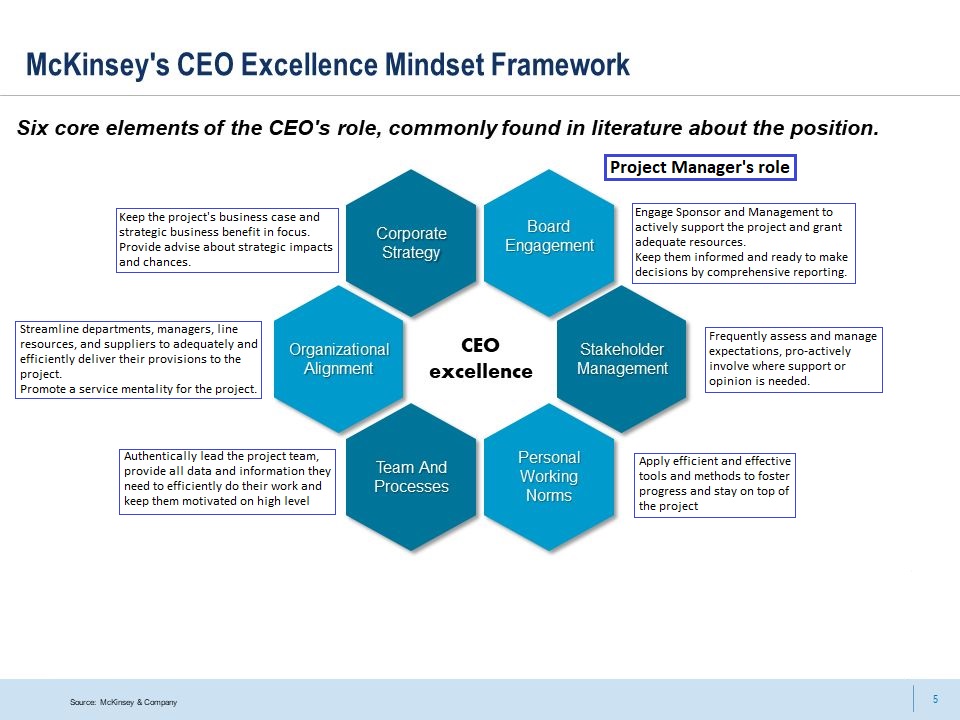
That’s why I exemplary took an original slide from the presentation with the roles and tasks of a CEO at McKinsey and added those of a project manager to compare. Of course, this could be extended as desired. But I think it’s enough to show that the two roles and their responsibilities actually only differ in “altitude” and budget.
Perhaps this is food for thought for the future staffing of your projects: Project Management is not a commodity but a management job. Recruiting does not belong in purchasing, and price should not be the decisive criterion…
Read more about project staffing…



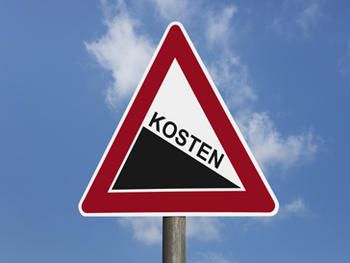
 Success in Disruptive Times
Success in Disruptive Times PMI members have already received mail, for all others it is available here: The new PMI Pulse of the Profession Report is out. Again it is constituted that companies with a higher maturity in project management have better and more profitable projects – seems to be no wonder. But different to the preceding years the study for the first time since five years has detected an improvement of meeting project objectives: “Only” 9.7% of the investment sum were “burnt”, that is 20% less than the year before!
PMI members have already received mail, for all others it is available here: The new PMI Pulse of the Profession Report is out. Again it is constituted that companies with a higher maturity in project management have better and more profitable projects – seems to be no wonder. But different to the preceding years the study for the first time since five years has detected an improvement of meeting project objectives: “Only” 9.7% of the investment sum were “burnt”, that is 20% less than the year before! The PMI Pulse of the Profession 2016 (again) shows very clearly and easy to understand why project success, business success and good project management are directly interrelated: projects are 2 ½ times more successful (and profitable) when proven project management practices are used. It bases its argument this time as expected on PMI’s newly introduced Talent Triangle and stresses the necessity of interacting technical project management, leadership, and strategic and business management for corporate success.
The PMI Pulse of the Profession 2016 (again) shows very clearly and easy to understand why project success, business success and good project management are directly interrelated: projects are 2 ½ times more successful (and profitable) when proven project management practices are used. It bases its argument this time as expected on PMI’s newly introduced Talent Triangle and stresses the necessity of interacting technical project management, leadership, and strategic and business management for corporate success.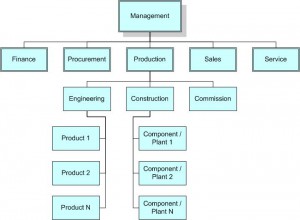 In Europe enterprises typically have an established line organization structure with functional and central departments. This is especially the case in our traditionally strong industries like Mechanical and Plant Engineering and in particular in privately owned, mid-size companies, but also at consulting and IT firms, engineering and development bureaus etc. Often I find a distinctive own life of the departments, production locations or plants with silo thinking, insufficient communication and cooperation. This becomes very evident with cross-functional work in projects.
In Europe enterprises typically have an established line organization structure with functional and central departments. This is especially the case in our traditionally strong industries like Mechanical and Plant Engineering and in particular in privately owned, mid-size companies, but also at consulting and IT firms, engineering and development bureaus etc. Often I find a distinctive own life of the departments, production locations or plants with silo thinking, insufficient communication and cooperation. This becomes very evident with cross-functional work in projects.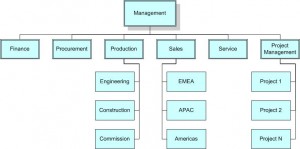 Project management as a core competency and strong department. Quit with functional specialists who lead the projects at the side. Project management needs full attention on planning, coordination and leadership – actually same as with corporate management. Time and objective conflicts of two hearts in the project leader’s chest are poison for concentrating on the essentials. His “thinking” also needs to be project-driven, no longer product love struck. Everybody contributes his core competence, the engineer his functional knowledge, and the project manager his PM skills, for success of the total. Process models and best practices make it replicable and calculable.
Project management as a core competency and strong department. Quit with functional specialists who lead the projects at the side. Project management needs full attention on planning, coordination and leadership – actually same as with corporate management. Time and objective conflicts of two hearts in the project leader’s chest are poison for concentrating on the essentials. His “thinking” also needs to be project-driven, no longer product love struck. Everybody contributes his core competence, the engineer his functional knowledge, and the project manager his PM skills, for success of the total. Process models and best practices make it replicable and calculable.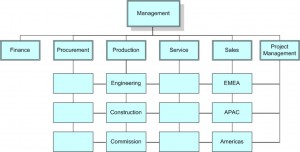 Functional and central departments as service providers for the projects. The previously gone through change in your corporate project culture will help you here. The engineers’ provisions will now not only serve for the product’s perfection but also for the whole task’s delivery to contract. Procurement will not only look at the terms and conditions but also (may be even sometimes with concessions supporting the project targets) at the reliability of delivery. Legal will probe partnership in collaboration; QM controls the project’s product quality and drives process quality (Continuous Improvement). HR will search for skills instead of positions, train for future project requirements, take care for a corporate identity among the employees, etc.
Functional and central departments as service providers for the projects. The previously gone through change in your corporate project culture will help you here. The engineers’ provisions will now not only serve for the product’s perfection but also for the whole task’s delivery to contract. Procurement will not only look at the terms and conditions but also (may be even sometimes with concessions supporting the project targets) at the reliability of delivery. Legal will probe partnership in collaboration; QM controls the project’s product quality and drives process quality (Continuous Improvement). HR will search for skills instead of positions, train for future project requirements, take care for a corporate identity among the employees, etc.
